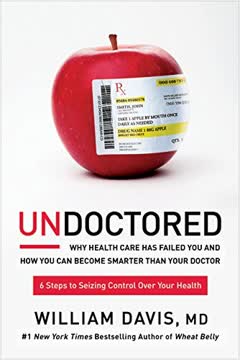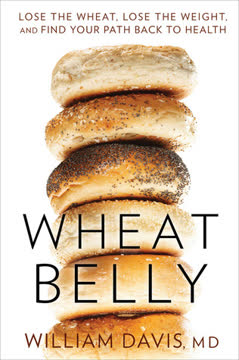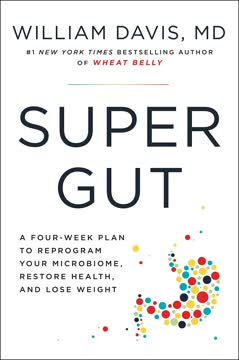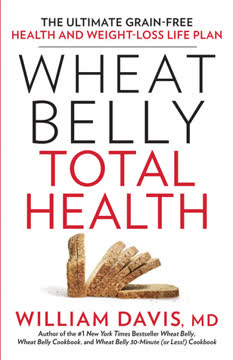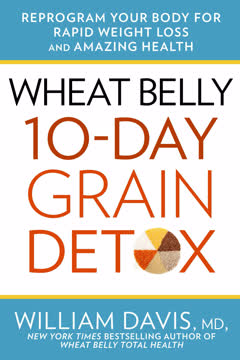Key Takeaways
1. The Healthcare System is Broken: Profit Over Health
Health care is the system created to deliver the greatest revenue-generating products and procedures to address illness, but not provide health.
A harsh reality. The author, a former cardiologist, argues that modern healthcare prioritizes profit over genuine health. It's a $3 trillion industry in the US, spending more than other developed countries with inferior outcomes. This system is designed to maximize financial returns for insiders, from pharmaceutical companies to hospitals, rather than prevent disease or promote well-being.
Myth-busting healthcare. The book debunks common myths:
- Health care is about healing: Largely lost, subverted by fees and profits.
- Doctors are all-knowing: Information overload makes this impossible; knowledge is often outdated.
- High quality costs money: More healthcare often means worse outcomes and more deaths.
- Hospitals are havens of caring: They are businesses, often with "nonprofit" status masking huge executive salaries.
The "Wealthcare Bubble." This profit-driven system, dubbed the "Wealthcare Bubble," is unsustainable. It thrives on "medicalizing" normal life events and treating symptoms rather than causes. By opting out of unnecessary medical services through self-directed health, individuals can save thousands and avoid being exploited by a system that views them as revenue opportunities.
2. Empowerment Through Information, Community, and Technology
The newly leveled playing field of immediately accessible information means that a new clinical study read by your neurologist or gynecologist is available to you with a few mouse clicks.
Information revolution. The Information Age has irrevocably altered the landscape of health. What was once guarded medical knowledge is now instantly accessible to anyone with an internet connection. This democratization of information empowers individuals to understand their health conditions and potential solutions, challenging the traditional paternalistic doctor-patient relationship.
Wisdom of crowds. Beyond raw information, the power of online communities and collaboration is transformative. Platforms like PatientsLikeMe and CureTogether demonstrate how collective wisdom can yield accurate answers to complex health problems, often surpassing individual experts. This crowdsourced intelligence allows people to share experiences, track data, and learn from thousands of others facing similar challenges.
Technological tools. A new arsenal of home health tools, from smartphone apps to direct-to-consumer lab and genetic testing, further empowers individuals. These tools enable self-monitoring of vital signs, tracking of dietary impacts, and even analysis of one's microbiome. This shift moves health management from clinics to kitchens, making health a personal, data-driven endeavor.
3. Reclaim Health with a "Wild, Naked, and Unwashed" Diet
The modern diet, with its unrestrained excess and perverse indulgence of innate impulses such as the desire for sweet, compounded by pseudoscience and misinterpretation, underlies an astounding number of modern health problems, what are labeled "diseases of civilization," diseases that are virtually unknown in primitive societies following traditional diets.
Return to roots. The "Wild, Naked, and Unwashed" diet advocates returning to eating patterns humans followed for millions of years before agriculture and modern processing. This approach recognizes that our bodies are adapted to specific foods, and deviating from them leads to "diseases of civilization" like diabetes, obesity, and autoimmune conditions, which are rare in primitive societies.
Lessons from ancestors. Anthropological studies of groups like the Hadza or Kitavan show extraordinary health, perfect teeth, and absence of modern chronic diseases when consuming traditional diets of hunted animals and gathered plants. When these populations adopt Western diets, they rapidly develop the same health problems. This demonstrates that diet, not genetics, is the primary driver of these conditions.
Liberating, not restrictive. This lifestyle eliminates foods that are unnatural to human physiology, leading to profound health transformations. It's not about deprivation but liberation from appetite-stimulating, inflammation-provoking, and disease-causing conventional foods. The goal is to eat real, whole foods, as close to their natural state as possible, mimicking our ancestors' diet while leveraging modern conveniences.
4. Grains and Sugar: The Root of Modern Disease
Wheat and its two most closely related grains, rye and barley, are therefore not just a vehicle for gluten but are packed with dozens of compounds toxic to humans, with adverse effects inadvertently amplified by agribusiness through efforts that have everything to do with agricultural goals and nothing to do with your health.
The grain deception. Grains, introduced into the human diet only 10,000 years ago, are a primary culprit behind modern health issues. Modern wheat, in particular, has been genetically altered (not "modified" in the GMO sense, but through hybridization and mutagenesis) to increase yield and pest resistance, inadvertently amplifying its toxicity to humans.
Toxic compounds in grains. Grains contain several problematic compounds:
- Gliadin: A protein in gluten that breaks down into "exorphins" (opioid-like peptides) in the human gut, stimulating appetite and causing mind-altering effects like brain fog and anxiety.
- Gluten: Genetically manipulated, leading to new glutenin proteins never before encountered by humans, triggering allergic and autoimmune responses.
- Wheat Germ Agglutinin (WGA): An indigestible lectin that damages intestinal microvilli and can cause celiac-like damage.
- Phytates: Block absorption of essential minerals like iron, zinc, calcium, and magnesium.
- Amylopectin A: A "complex" carbohydrate that rapidly raises blood sugar higher than table sugar, contributing to insulin resistance and glycation.
Sugar's destructive path. Beyond grains, excessive sugar consumption (sucrose, high-fructose corn syrup) drives insulin resistance and glycation. Glycation, the irreversible modification of body proteins by sugar, accelerates aging and contributes to cataracts, arthritis, heart disease, and dementia. The "Undoctored" approach eliminates these dietary culprits, reversing a wide array of chronic conditions.
5. Embrace Healthy Fats and Manage Carbohydrates
The greater your fat and oil intake, the more appetite is suppressed, the more blood sugar drops, the more insulin resistance reverses, the more weight is lost—and, no, you do not develop heart disease.
Fat phobia debunked. For decades, conventional wisdom wrongly demonized dietary fats, especially saturated fats, as causes of obesity and heart disease. This "low-fat" dogma, driven by flawed science and industry lobbying, led to a proliferation of processed, high-carb, low-fat foods that fueled epidemics of obesity and diabetes. The Undoctored approach rejects this, recognizing fats as essential and satiating.
The truth about fats. Humans have consumed animal fats for millions of years without adverse effects. Healthy fats (lard, tallow, coconut oil, olive oil, avocado oil, organic butter/ghee) are crucial for satiety, hormone balance, and overall health. They do not cause heart disease. Conversely, processed seed oils (corn, soybean, canola) are high in inflammatory omega-6 fatty acids and should be avoided.
Carbohydrate control. While fats are embraced, digestible carbohydrates are carefully managed. The goal is no more than 15 grams of net carbs (total carbs minus fiber) per meal. This strategy effectively lowers blood sugar and insulin, reverses insulin resistance, and promotes effortless weight loss. Unlike calorie counting, which is largely ineffective, managing net carbs provides profound control over metabolic health.
6. Cultivate Your Inner Ecosystem: The Power of Bowel Flora
The destruction of our inner ecosystem surely deserves more attention as global populations run gut-first into the buzz saw of globalization and its microbial scrubbing diet.
The hidden universe within. Our intestines host trillions of microorganisms, collectively known as bowel flora, which profoundly impact our health. Modern lifestyles—excessive cleanliness, antibiotics, chlorinated water, processed foods, and environmental toxins—have dramatically disrupted this delicate ecosystem, leading to dysbiosis, a condition almost universal in modern humans.
Dysbiosis and disease. Disrupted bowel flora is linked to a vast array of health problems, from irritable bowel syndrome and obesity to autoimmune diseases, diabetes, and even mental health issues. Primitive populations, unexposed to modern disruptors, exhibit strikingly different and healthier microbial compositions. Restoring this inner garden is a powerful, often overlooked, path to health.
Nurturing your garden. The Undoctored approach to cultivating healthy bowel flora involves:
- Seeding: High-potency, multi-species probiotics and daily consumption of fermented foods (like homemade sauerkraut).
- Nourishing: Daily intake of 20 grams of prebiotic fibers (from green bananas, raw white potatoes, inulin/FOS, legumes) that feed beneficial microbes.
- Protection: Filtering drinking water, avoiding unnecessary antibiotics, minimizing prescription drugs, and reducing exposure to emulsifiers and artificial sweeteners.
7. Correct Common Nutritional Deficiencies for Optimal Health
If a specific nutritional deficiency exists, such as scurvy from lack of vitamin C, the only way to reverse it, treat it, cure it is—vitamin C. Nothing else can take its place.
Beyond "balanced diet." Despite societal abundance, most modern individuals suffer from deficiencies in several crucial nutrients, often unrecognized by conventional medicine. These deficiencies, exacerbated by grain consumption and modern lifestyles, lead to a cascade of health problems that doctors often "treat" with drugs, ignoring the root cause.
Key deficiencies and their impact:
- Vitamin D: Deficiency is rampant due to indoor living and sun avoidance. Restoration (4,000-8,000 IU D3 daily, targeting 60-70 ng/mL blood levels) dramatically reduces inflammation, autoimmune risk, bone thinning, heart disease, depression, and cancer.
- Iodine: Deficiency is re-emerging due to reduced iodized salt intake. Restoration (500-1,000 mcg daily) supports thyroid health, reverses goiters, and protects against environmental halogens.
- Omega-3 Fatty Acids (EPA/DHA): Lacking in modern diets, these are essential. Supplementation (3,000-3,600 mg EPA+DHA daily) reduces heart disease, inflammation, and improves brain health.
- Magnesium: Widely deficient due to grain phytates and water filtration. Restoration (400-500 mg elemental magnesium daily) lowers blood pressure, stabilizes blood sugar, reduces muscle cramps, and supports bone health.
Synergistic restoration. These nutrients are not mere "supplements" but fundamental components of human physiology. Correcting these deficiencies, especially when combined with grain elimination and bowel flora cultivation, creates a powerful synergy that reverses numerous health conditions far beyond what any single intervention could achieve.
8. Optimize Sleep, Exercise, and Minimize Toxins
Sleep can literally be, at least over an extended time period, a life or death matter.
Circadian rhythm is key. Poor sleep, often a consequence of modern life's disruption of natural circadian rhythms, significantly impairs health. It amplifies appetite, contributes to weight gain, increases dementia risk, and raises mortality. Melatonin, the body's natural circadian regulator, is crucial for restorative sleep and overall hormonal balance.
Smart sleep and exercise. Strategies include avoiding blue light from screens before bed, using melatonin (0.5-12 mg) and tryptophan (500-3000 mg) supplements, and aiming for sleep in 90-minute cycles. Exercise, while ineffective for weight loss alone, is vital for overall health:
- Reduces blood sugar, insulin resistance, and blood pressure.
- Improves mood, reduces anxiety, and enhances brain plasticity.
- Includes strength training and axial-impact activities for bone health.
- Brief, high-intensity bursts offer significant benefits in less time.
Minimizing toxic load. Industrial chemicals (PCBs, dioxins, BPA, parabens, phthalates) are ubiquitous and disrupt endocrine, immune, and neurological systems. While complete avoidance is impossible, individuals can minimize exposure by:
- Filtering drinking water (chlorine, fluoride removal).
- Choosing organic foods to reduce pesticide/herbicide residues.
- Avoiding BPA in cans and plastics.
- Selecting safe toiletries and cosmetics (checking EWG ratings).
- Detoxifying through cruciferous vegetables and sweating (saunas, exercise).
9. Break Weight Plateaus and Address Persistent Issues
It is important to not misread failure to lose weight as failure of the program or personal failure; it is most commonly due to the presence of one or more factors that are blocking your weight-loss success.
Beyond the basics. While the core Undoctored program yields substantial weight loss for most, some individuals encounter frustrating plateaus. This is rarely a failure of the program or personal willpower, but rather indicates underlying blocking factors that need specific attention. Identifying and correcting these factors is crucial for continued progress.
Common weight-loss blockers:
- Medications: Beta-blockers, antihistamines, antidepressants, anti-inflammatory drugs, and insulin can all impede weight loss.
- Inadequate fat intake: Not embracing healthy fats sufficiently can leave one hungry and stall progress.
- Dairy sensitivity: Whey protein in dairy can dramatically increase insulin in some, blocking fat mobilization.
- Iodine deficiency/Hypothyroidism: Uncorrected thyroid issues severely hinder metabolism and weight loss.
- Exceeding net-carb limits: Even small, seemingly safe carbohydrate sources can disrupt blood sugar and stall weight loss.
- Inadequate sleep: Disrupts hormones and increases appetite.
- Extreme stress/Adrenal dysfunction: High cortisol levels promote weight gain.
- Persistent dysbiosis: Unhealthy gut flora can impair metabolism.
- Severe insulin resistance: May require stricter ketosis (under 10g net carbs/meal) or intermittent fasting.
Personalized problem-solving. The Undoctored approach encourages a detective mindset: track, test, and adjust. Tools like blood glucose meters, salivary cortisol tests, and even temporary dairy elimination can pinpoint specific issues. This personalized problem-solving ensures that individuals can overcome obstacles and achieve their desired health and weight goals.
10. The Synergistic Power of the Undoctored Approach
The total is greater than the sum of the parts, magnificently greater.
A holistic transformation. The Undoctored program is not a collection of isolated tips but a synergistic system. Each strategy—from diet and supplements to lifestyle adjustments—interacts powerfully with others, amplifying overall benefits. Neglecting even one component can significantly diminish the profound health transformations possible.
Comprehensive reversal. This integrated approach leads to a comprehensive reversal of numerous chronic conditions simultaneously. For example, addressing insulin resistance through diet and supplements can resolve hypertension, high triglycerides, fatigue, depression, and even infertility. This holistic healing contrasts sharply with conventional medicine's fragmented, drug-focused treatment of individual symptoms.
A new paradigm for health. The Undoctored journey empowers individuals to become their own primary health arbiters, leveraging collective wisdom and personal data. It's a path to extraordinary health, weight management, and freedom from reliance on a profit-driven healthcare system. This disruptive innovation promises a future where individuals, not institutions, control their well-being, leading to a healthier, more resilient population.
Last updated:
Review Summary
Undoctored receives mixed reviews. Many praise its insights on taking control of health and questioning the healthcare system. The book advocates for a grain-free, low-carb diet and supplements. Some readers find it repetitive and overly critical of doctors. The diet recommendations are controversial, with some finding them extreme. Readers appreciate the emphasis on personal responsibility and research. However, some criticize the book's tone and lack of scientific references. Overall, it's seen as thought-provoking but potentially overwhelming for some readers.
Similar Books
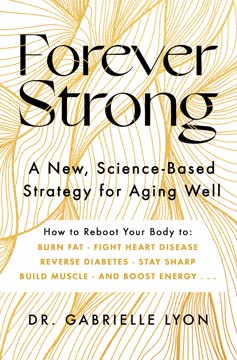
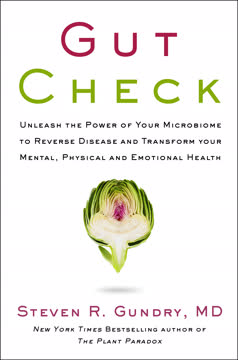
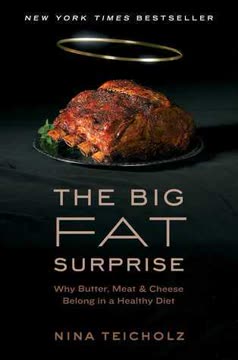

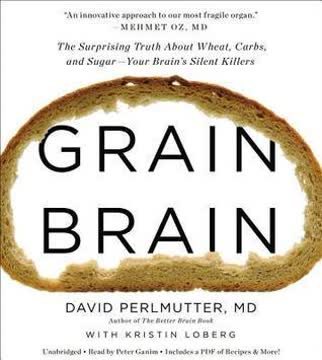
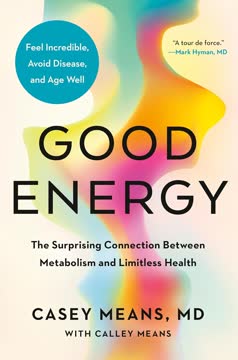
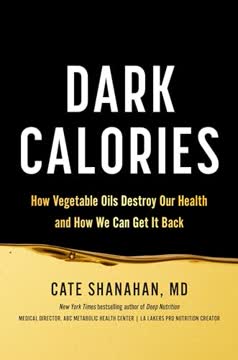
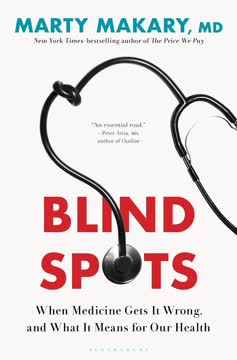
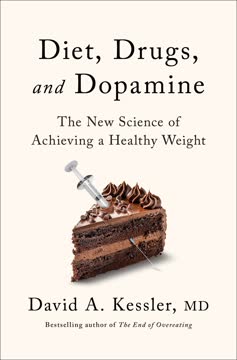

Download PDF
Download EPUB
.epub digital book format is ideal for reading ebooks on phones, tablets, and e-readers.
